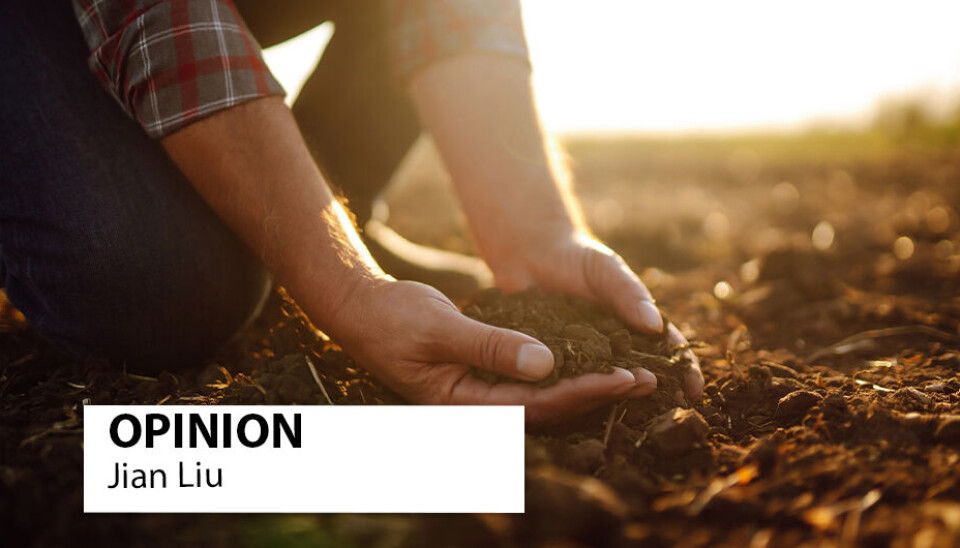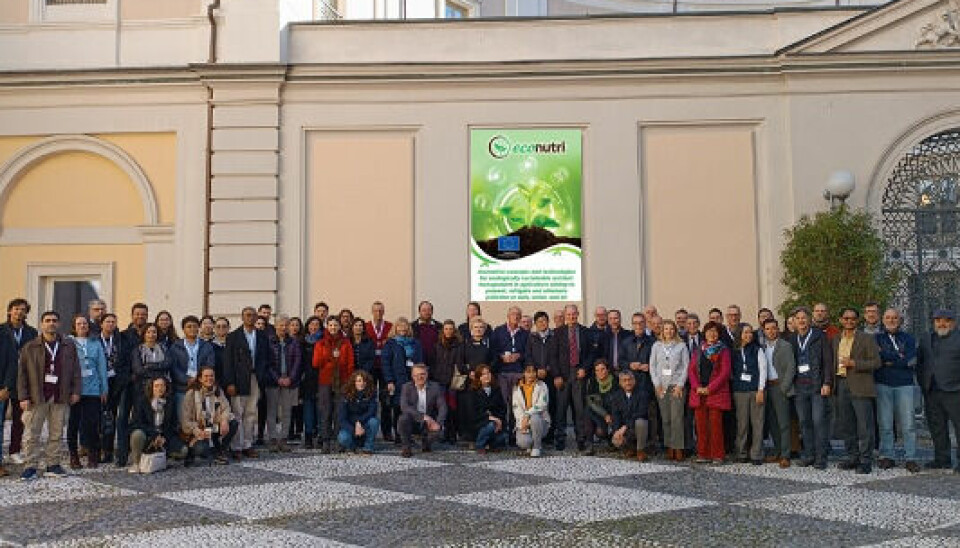Opinion:

World Soil Day emphasizes the increasing need to integrate soil and water research and management
OPINION: Extreme dry and wet events has caused many challenges to both food production and water protection. This calls for the increase of integrated soil and water research to address the national and global challenges in food security and environmental sustainability.
Each year, World Soil Day is held on 5 December globally to emphasize the importance of soils in food production, ecosystem health and the society. This year’s theme is soil and water, which together produce over 95 per cent of our food on the planet.
Protection of both soil and water resources is of great importance to the society, which is however challenged by the growing world population, demand of consumptions and thus agricultural intensification, as well as climate change. Soil and water are connected in many ways, one of which lies in soil nutrients (i.e., nitrogen and phosphorus) and water quality.
Nutritients can cause ecological collapse
The nutrients are essential for ensuring crop yield and health, but after running off by rainwater or snow melt, they become pollutants in surface water bodies where they accelerate eutrophication and can even lead to ecological collapses.
Norway has a long history of caring about soil and water quality issues. Since 1990s, a long-term soil and water monitoring program (JOVA) has been implemented to monitor effects of agriculture on water quality in 10 typical agricultural production systems across Norway.
The program is run by the Norwegian Institute of Bioeconomy Research (Nibio), which has been playing a critical role in soil and water research and providing useful recommendations to farmers and the authorities for sustainable soil and water management, both in Norway and internationally.
A hope for 30 more years of research program
The JOVA program has played an important role not only in water monitoring but also building up the connections between researchers and farmers and being used as a basis for providing valuable advice to farmers and authorities. The JOVA program leader Marianne Bechmann says that this year is JOVA’s 30-year anniversary and she hopes that the program can serve the country for at least another 30 years.
Several Nibio researchers are also part of a larger Nordic network to address the countries’ common challenges in catchment monitoring and improvement of water quality.
Norway is also active on the international stage for sustainable nutrient and water quality management. For instance, Nibio is an active player in an EU Horizon funded research project «Econutri» for developing innovative concepts and technologies for ecologically sustainable nutrient management in agriculture aiming to prevent, mitigate and eliminate pollution in soils, water and air.
Seven Nibio researchers from both agricultural production and environmental protection sides are undertaking important tasks in this project. The researchers are seeking ways to improve and optimizie technologies to recycle nutrients from organic materials such as livestock manure to increase nutrient recovery and use efficiency for both greenhouse and field crops.
They are also assessing how various mitigation measures, also increasingly referred to as nature-based solutions, work to reduce nitrogen and phosphorus emissions at the landscape level, using a systematic approach for data analyses.

According to the Nibio’s team leader for «Econutri» Ingunn Vågen, both the optimized technologies for nutrient recovery and the systematic assessment of mitigation measures will greatly help towards reducing nutrient losses from soils and improving water quality in both Norway and Europe.
A need for communication between researchers, farmers and policy makers
Climate change, especially the associated increasing numbers of extreme dry and wet events, has caused many challenges to both food production and water protection. This calls for the increase of integrated soil and water research for climate-smart agriculture to address the national and global challenges in food security and environmental sustainability.
Meanwhile, there is also a continuous need for communication between researchers, farmers, authorities, and policy makers to pave the way for a sustainable agriculture and society. The challenges can only be addressed with the involvement of all relevant actors to solve big issues such as the ecological collapse in the Oslofjord.
For further information:
- Norwegian JOVA program: https://www.nibio.no/en/subjects/environment/the-norwegian-agricultural-environmental-monitoring-programme-jova; https://www.youtube.com/watch?v=jzqvkcGpPOc
- ECONUTRI project: https://econutri-project.eu/.
- NIBIO researchers participated in the EU Horizon ECONUTRI project general assembly last week in Turin, Italy
Share your science or have an opinion in the Researchers' zone
The ScienceNorway Researchers' zone consists of opinions, blogs and popular science pieces written by researchers and scientists from or based in Norway. Want to contribute? Send us an email!



























